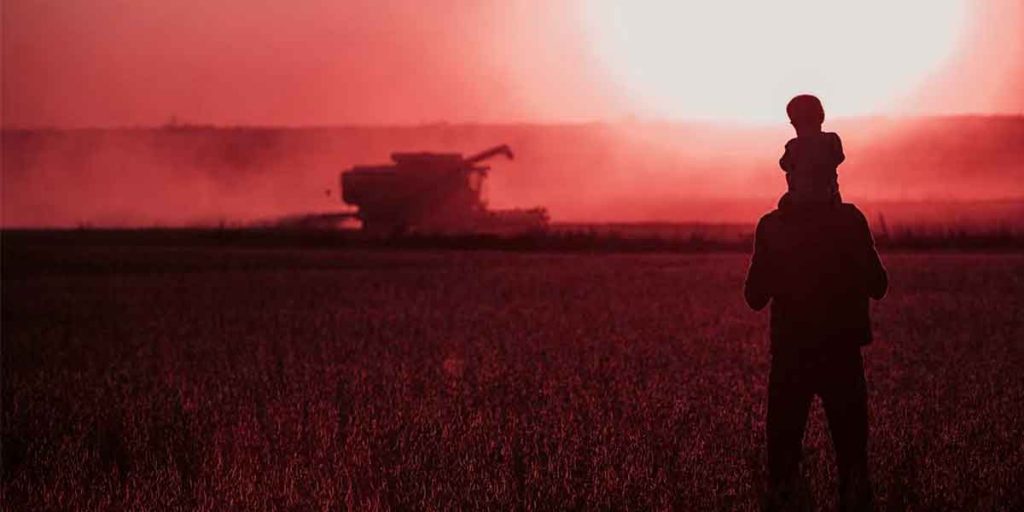While most businesses use real estate, unique planning issues arise for family farm owners because of the importance of real estate to the farm and family. There are several reasons for that.
Reasons
1. Family farms are not as mobile as other businesses.
2. Family farm owners usually have strong emotional attachments to the land. They treat the land they farm as an extension of their home; the land has often been in the family for multiple generations.
3. The land is a valuable asset. It may be practical to transfer farm operations, including equipment, etc., to on-farm heirs only. However, deciding what to do with the land is often more difficult because of the value it represents. Generally, it’s advisable to distribute assets so on-farm heirs don’t co-own farm assets with off-farm heirs. But often, the land value makes it difficult to leave farmland to only on-farm heirs and still treat all heirs fairly.
Some farm owners have no children interested in farming but still want to keep the land in the family. Others have some children who are interested in farming and some who are not, but they don’t want to leave all the land outright to only the on-farm heirs. Trusts and limited-liability companies can be used to keep the land in the family.
1. With a trust arrangement
The farm owner would transfer the land to an irrevocable trust, either during their lifetime or at death, instead of distributing the land outright to the heirs. A trust allows the owner to control the use and disposition of the land. The trust document can address a number of issues regarding the land.
2. Lease to child
Suppose the parents have three children. Child A is an on-farm heir who lives and works on the farm. Child B and Child C don’t live on the farm and don’t farm the land. The parents want to be fair to all three children but want to ensure Child A can continue to farm the land after they’re gone. The trust could allow Child A to use the land for agricultural purposes, either rent-paying or rent-free. That approach allows Child A to farm the land without needing to finance a purchase of the land.
3. Lease to third party
Suppose none of the children live and work on the farm and have no interest in farming. Parents can put the farmland in trust and give the trustee the authority to lease the land to third parties for agricultural purposes. The third-party pays rent to the trust. The trust beneficiaries – initially the three children – would receive distributions of the net rental income from the trust.
4. Restriction on use and sale
The trust could restrict the sale of the land for a period of time – although not indefinitely – even if no family member is currently farming it. The trust could also provide that the land be used only for agricultural purposes. Having the trust hold the land allows for the possibility that a more remote descendant, such as a grandchild, would have the opportunity to farm the land in the future.
5. Right of first refusal
If the trustee elects to sell the land, the trust could require the land first be offered for sale to the descendants – perhaps on favorable terms – before being sold to a third party.
Steps to Farm Succession Planning
- Sit down with an experienced farm estate planner and have a discovery meeting. The planner will learn about what’s important to you. They’ll learn about who is involved in the operation, your family, and what’s involved in terms of assets, income, the land, and the business.
- After learning about your long-term goals and objectives, the planner shows you how your current condition coordinates with your future vision. Most of the time, there will be some big gaps between the way things are now and how they ought to be if you want your objectives and desires to be carried out. That’s normal, though, and addressing it today ultimately gets you to where you want to be.
Transfer of farmland to a limited-liability company
Transferring farmland to a limited liability company to be owned by one or more children is another option. Transferring the land into an LLC is similar to a trust in that it creates a way for farm owners to establish rules for the use of the land. The children would own membership interests in the LLC, similar to stock in a corporation. The LLC could have both voting and nonvoting interests. It would have a written agreement, called an operating agreement, which would restrict the transfer of interests to third parties and create a management structure. The key difference between an LLC and a trust is that with an LLC, the owners own an asset, which they can transfer either during their lifetime or at death. In contrast with a trust, beneficiaries don’t “own” anything.
Get help
If you would like to learn more about estate planning, any of our estate planning attorneys would be happy to assist you.









